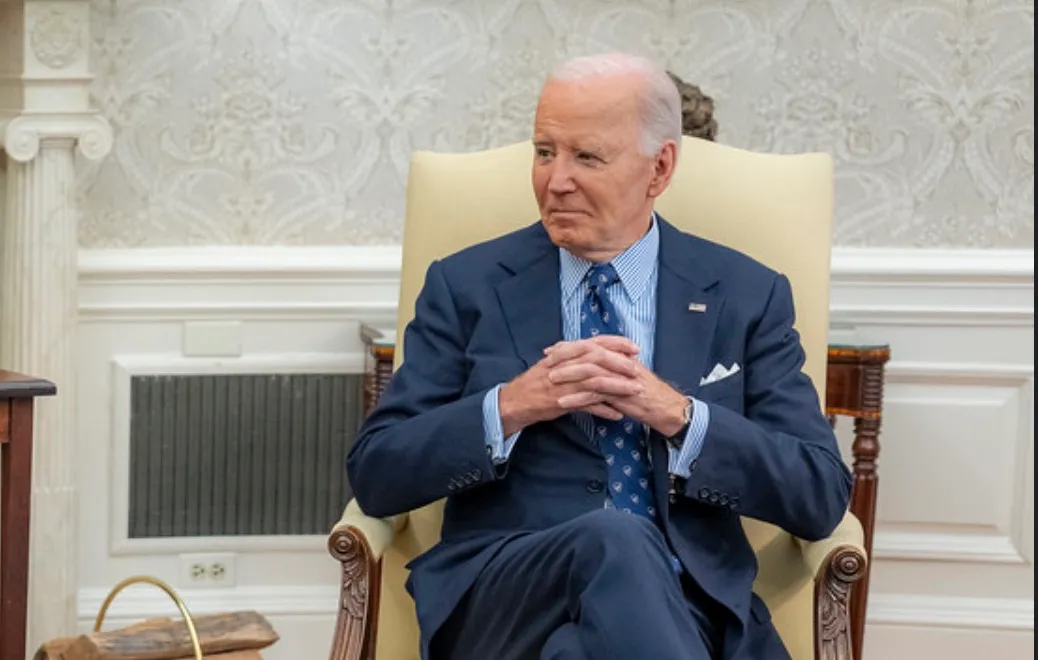Over the past 48 hours, the strategy has become clear. After the Biden Administration refused to comment on the explosive revelations over the weekend that the United States has given Ukraine permission to use American missiles to strike targets deep inside internationally-recognized Russian territory—an acknowledged act of war—Ukraine unleashed a volley of missiles on Nov. 19 into Russia’s Bryansk Region. That on the same day that Russian President Vladimir Putin signed an executive order updating its nuclear weapons doctrine, which includes the qualification that “an aggression against Russia from any non-nuclear state but involving or supported by any nuclear state as their joint attack.”
Then, the following day, Ukraine unleashed another attack inside Russia, this time using British Storm Shadow missiles, despite Britain’s repeated statements that they had not given permission to do so. Thus, the bizarre game of intentionally ambiguous escalation continues, leaving the onus on nuclear-armed Russia to guess the West’s intentions and to respond in moderation. Ukrainian President Zelenskyy let it out of the bag Tuesday night, Nov. 19, when he admitted that permissions had been given, and now Ukraine will strike the Russian military “wherever it is.”
On Nov. 19, even before the Nov. 20 attacks in Kursk, Russian Foreign Minister Sergey Lavrov stated clearly: “We will be taking this as a qualitatively new phase of the Western war against Russia, and we’ll react accordingly.”
The Biden Administration—or whoever is calling the shots—has now embarked on a mad and desperate pursuit to embroil the U.S. into war against Russia, thereby making it “Trump-proofed” against any President who would ever want to reverse it. In the process, not only have they decided that risking the lives and futures of all people on Earth is a worthy gamble, but they have also torn up the constitutional process of a peaceful transfer of power to the incoming President—despite all their statements to the contrary. As the decision about the long-range missiles shows, the U.S. Administration is pulling out all the stops toward this end, and even lifted the blockade on Ukraine’s use of anti-personnel landmines. It’s undeniable that the world now stands on the brink of thermonuclear war, and must be pulled back through the meticulously careful actions of peace-oriented leaders.
The only thing more consequential than this danger is the absolutely historical transformation unfolding throughout the Global South—and increasingly worldwide. The G20 summit, hosted in Brazil, ended Nov. 19 with shrieks and howls from the world’s would-be colonial masters. The German, French, and U.S. representatives complained that the final communiqué did not condemn Russia enough—a feat that was conveniently arranged when their leaders were not in the main hall, and Brazilian President Lula made an early release of the document. As Bloomberg noted in its coverage of the summit: “if [the G20 summit in] Rio showed anything, it’s that the West is no longer running the show.”
Following the G20, Chinese President Xi Jinping then headed to Brasilia for an official state visit with President Lula, where the two leaders took their countries’ relationship to the next level. They elevated their existing Comprehensive Strategic Partnership to one of a “Community of Shared Future for a More Just World and a Sustainable Planet.” The two Presidents signed dozens of economic agreements and established a task force which will concretize plans for some of the larger continent-wide projects over the coming two months. Reflecting the polyphonic quality of the collaboration between these two nations, Lula said: “What China and Brazil do together reverberates around the world.” Both leaders discussed their joint six-point peace proposal for Ukraine, implicitly comparing it to the disastrous wars unfolding under the watch of the “rules-based order,” with Lula also adding: “In a world ravaged by armed conflict and geopolitical tensions, China and Brazil put peace, diplomacy and dialogue first.”
The world is shifting under our feet. Taken together with President Xi’s joining with Peru’s President Dina Boluarte in presiding over the Nov. 14 opening of the enormous Chancay Port in Peru, which will finally loosen the neocolonial bonds from Ibero America as a whole, and the U.S. veto on Nov. 20 of another UN Security Council resolution for a ceasefire in Gaza, these developments give an indication of the transformation underway in the world. And thus, why it is that some are so desperate to stop it.
Will the U.S. under a new Trump Administration be brought into line with this historical process sweeping the globe? Can Western nations rediscover their better heritage—or will they propel the world into destruction to prevent the rise of the rest? These questions have never been more in focus for all to see, presenting us with a unique organizing opportunity for their resolution.







